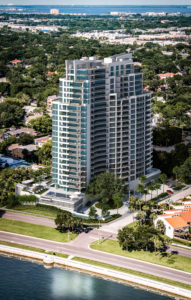![First Green Bank, a community bank based in Orlando, is the first in Florida to work with licensed medical marijuana companies. [Photos courtesy of First Green Bank]](http://www.tampabay.com/storyimage/HI/20170831/ARTICLE/308319719/AR/0/AR-308319719.jpg)
By Justine Griffin
Opening a medical marijuana dispensary in Florida naturally comes with a lot of red tape.
Marijuana is still considered an illegal substance at the federal level, despite the 29 states that have legalized it for recreational or medicinal use in recent years. That makes it nearly impossible for banks to fund marijuana distributing companies, which in turn makes it hard for those companies to sign a lease for a store or warehouse or even get insurance.
But one Orlando area community bank is willing to take on the risk.
First Green Bank, a community bank that began in 2009, is working with six out of the seven currently licensed medical marijuana dispensing companies in Florida.
“It all comes down to compliance and transparency, since we’re subject to enhanced money laundering rules,” said James Whitcomb, the chief financial officer of Surterra Holdings Inc., an Atlanta-based medical marijuana company which has grow operations and dispensaries in Florida, including in Tampa. Surterra is a client of First Green Bank. “In order for banks to be compliant with us as customers, they have perform a lot more due diligence. It basically means they have to track every single transaction we make to ensure that no dollar goes to any gang or criminal enterprise,” Whitcomb said.
Because federal law makes it illegal to possess or distribute marijuana — no matter the laws passed in an individual state — it’s considered money laundering, according to the American Bankers Association. It would take an act of Congress to change that. Because of this, most banks in Florida have steered clear of working with the state’s seven licensed growers and distributors of cannabis.
Read more here.
![The Walmart Supercenter in Lake Nona, a suburb of Orlando, is an innovation store where the retail chain tests new programs. [Photos by Justine Griffin | TIMES]](http://www.tampabay.com/storyimage/HI/20170824/ARTICLE/308249456/AR/0/AR-308249456.jpg)

![Patient Julie DiPietrantonio, 67, of St. Petersburg, is examined by Dr. Howard Riker of Tetra Health Care. DiPietrantonio suffers from chronic pain caused by spinal stenosis, degenerative arthritis, and sacroiliitis. She is looking for relief by using medical marijuana. [SCOTT KEELER | Times]](http://www.tampabay.com/storyimage/HI/20170727/ARTICLE/307279374/AR/0/AR-307279374.jpg)
![A developer has demolished the Sears store at Tyrone Square Mall and is replacing it with a Dick's Sporting Goods and Lucky's Market. [CHERIE DIEZ | Times]](http://www.tampabay.com/storyimage/HI/20170714/ARTICLE/307149515/AR/0/AR-307149515.jpg)